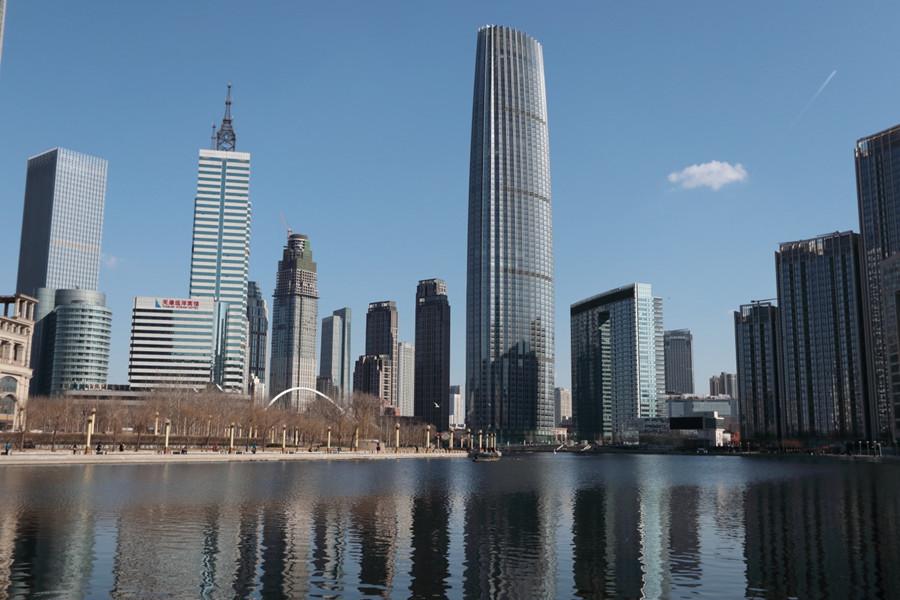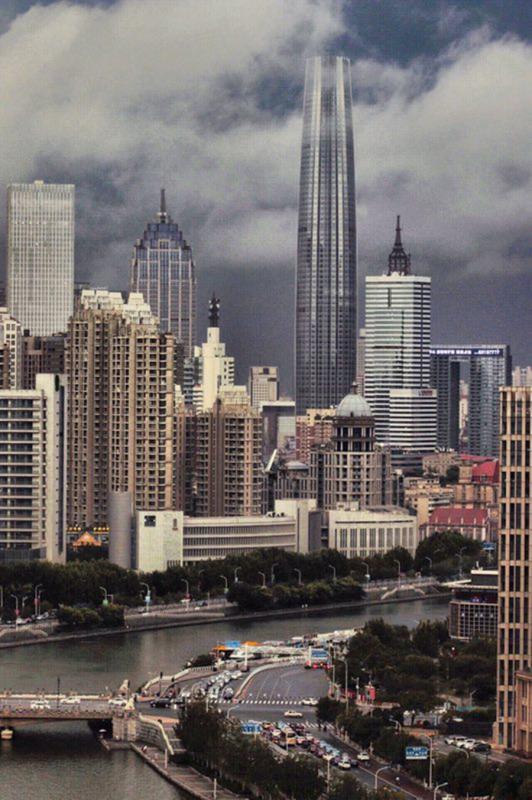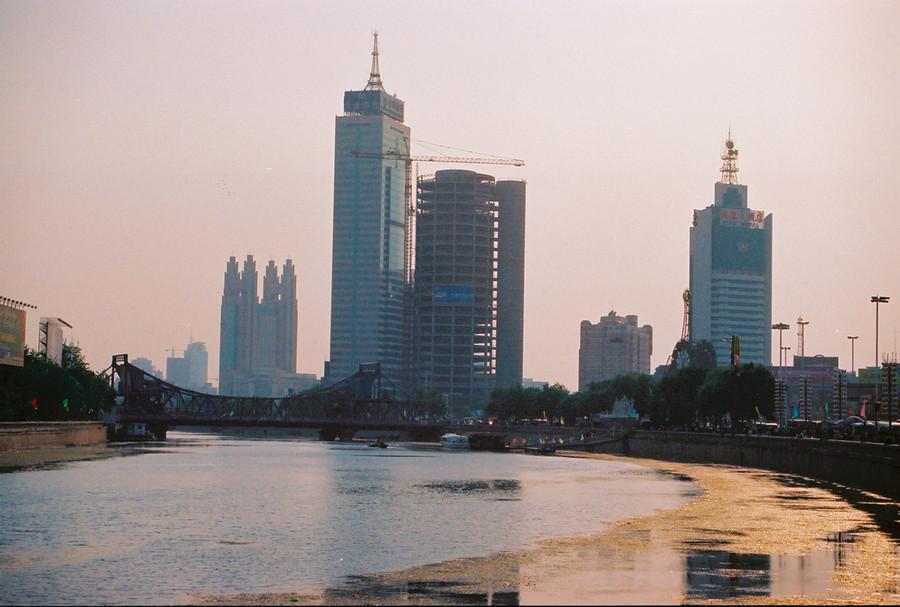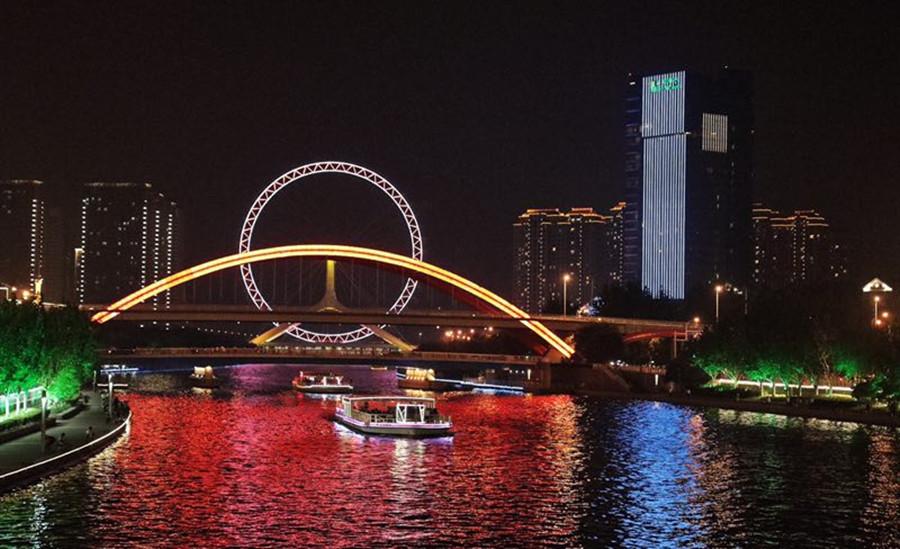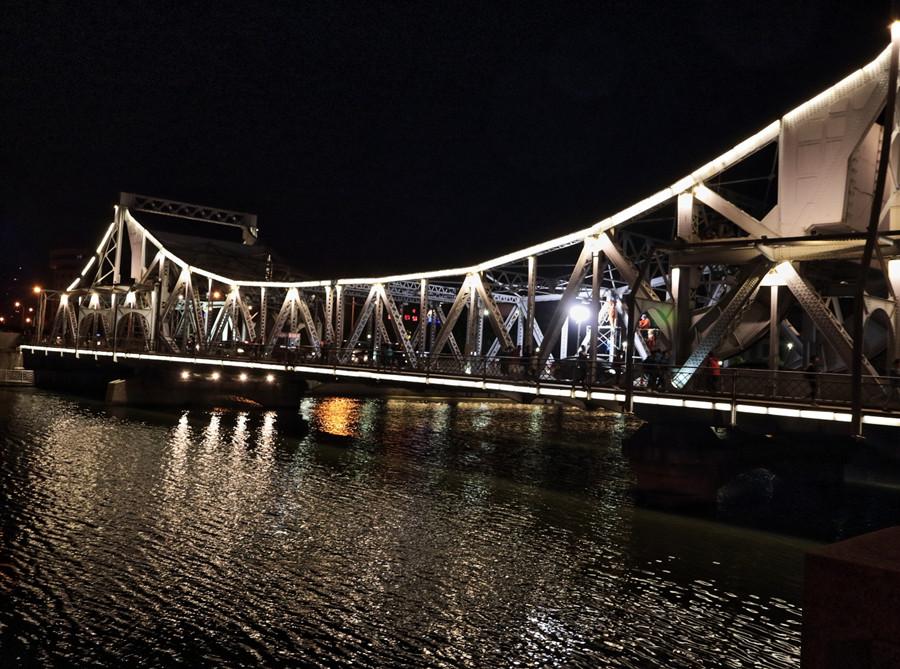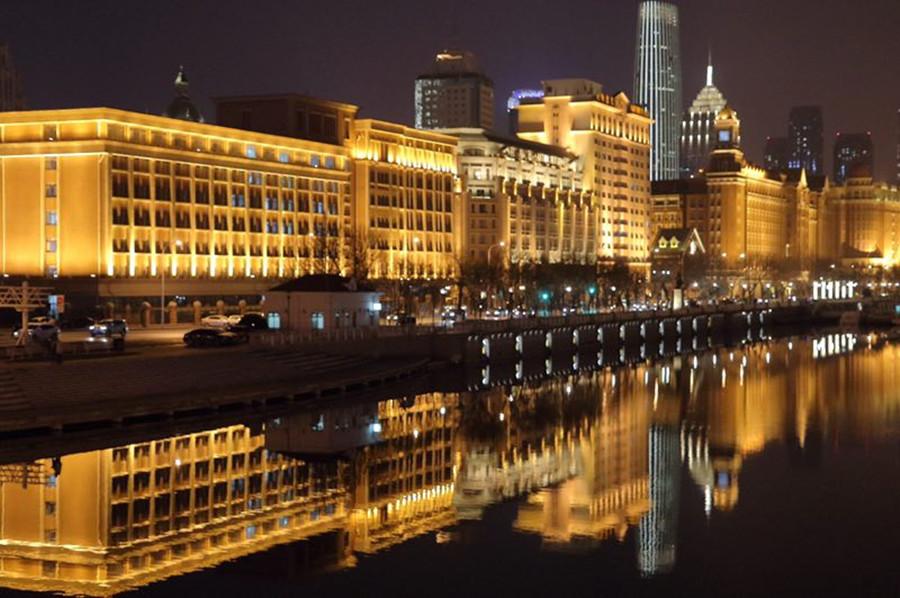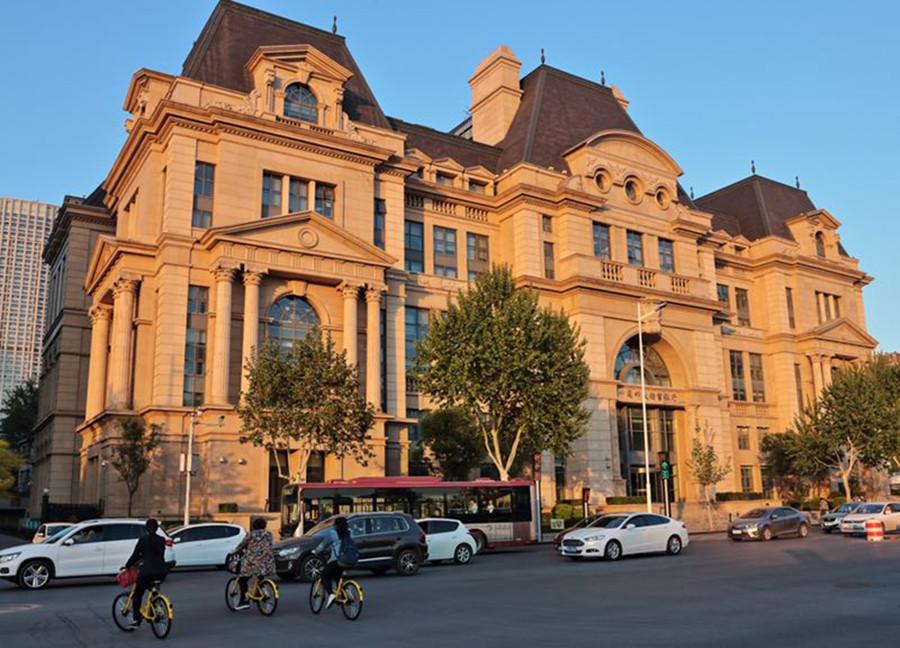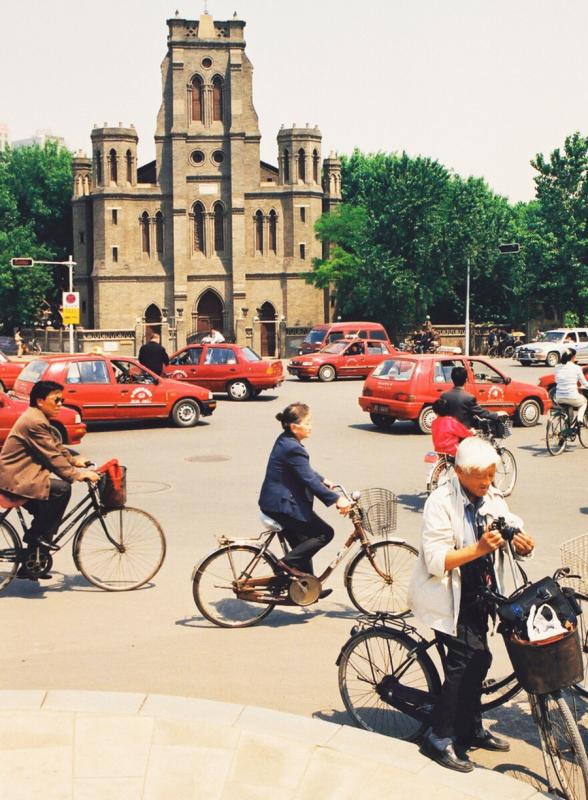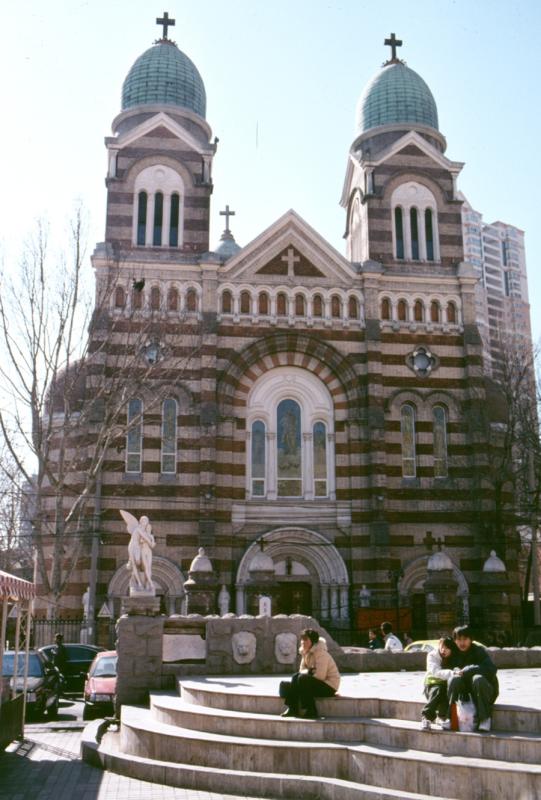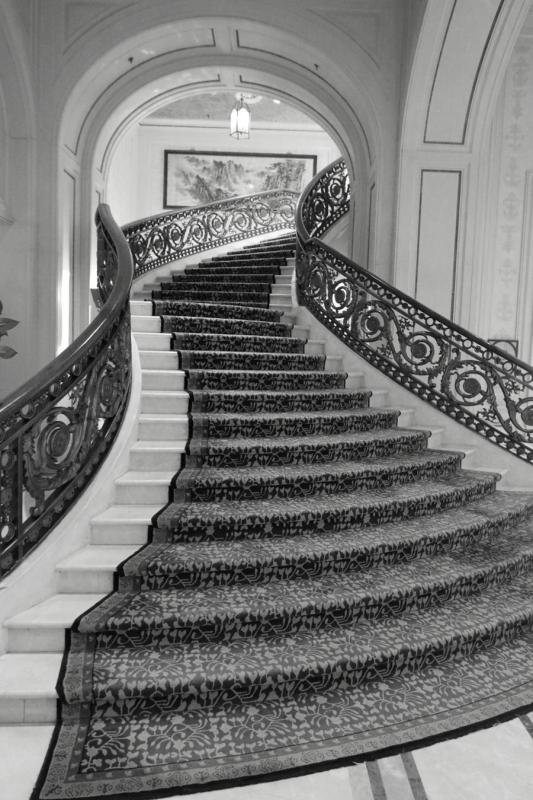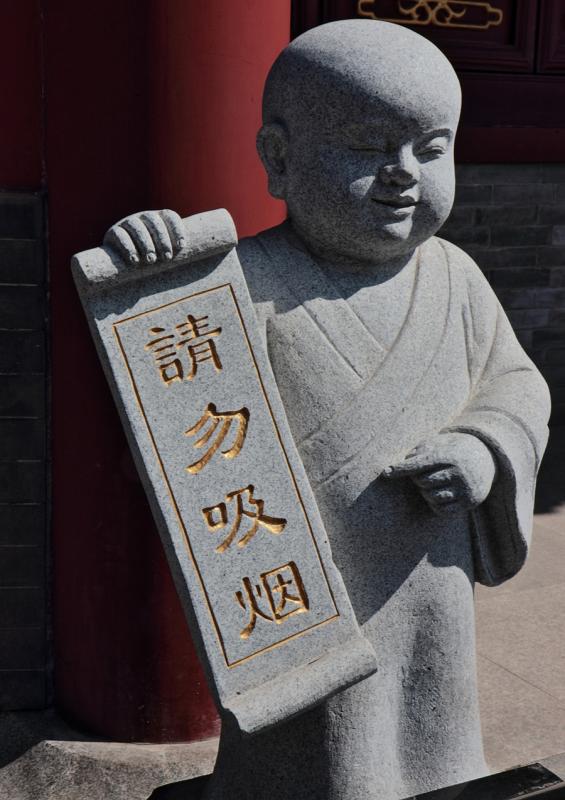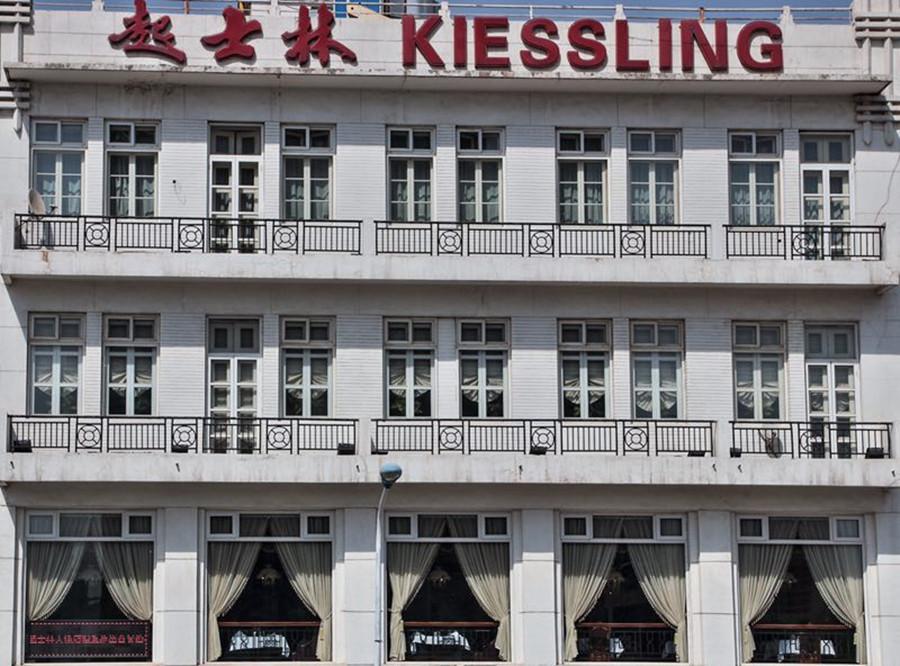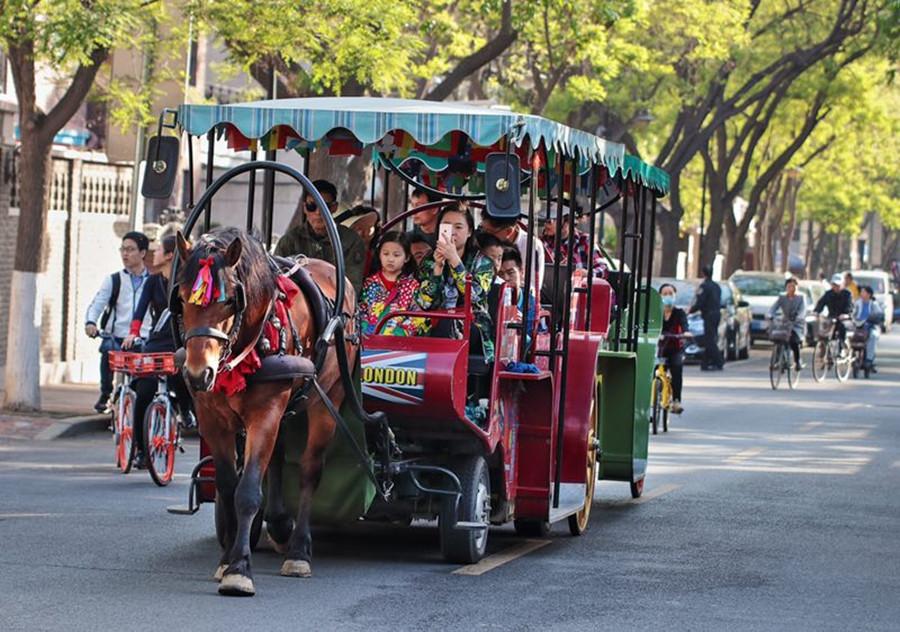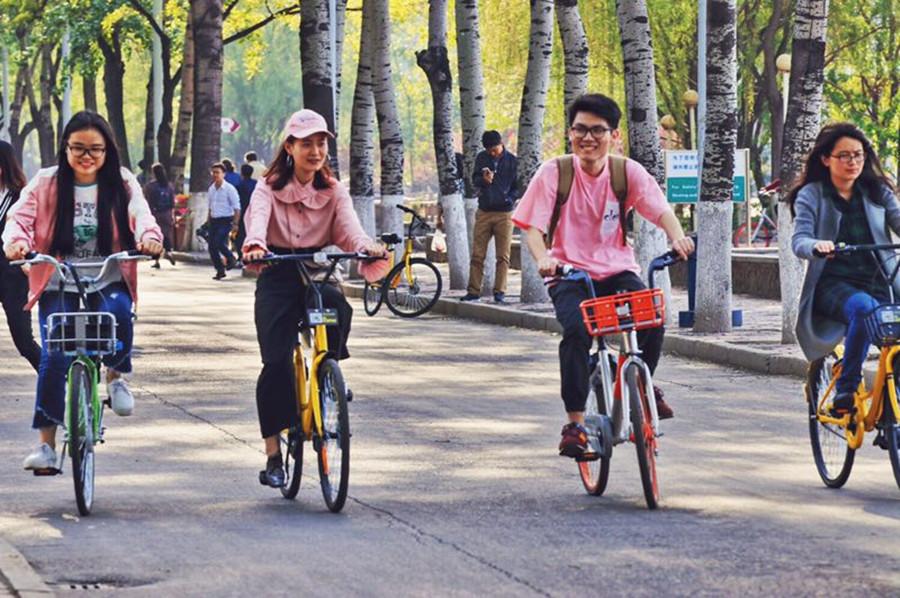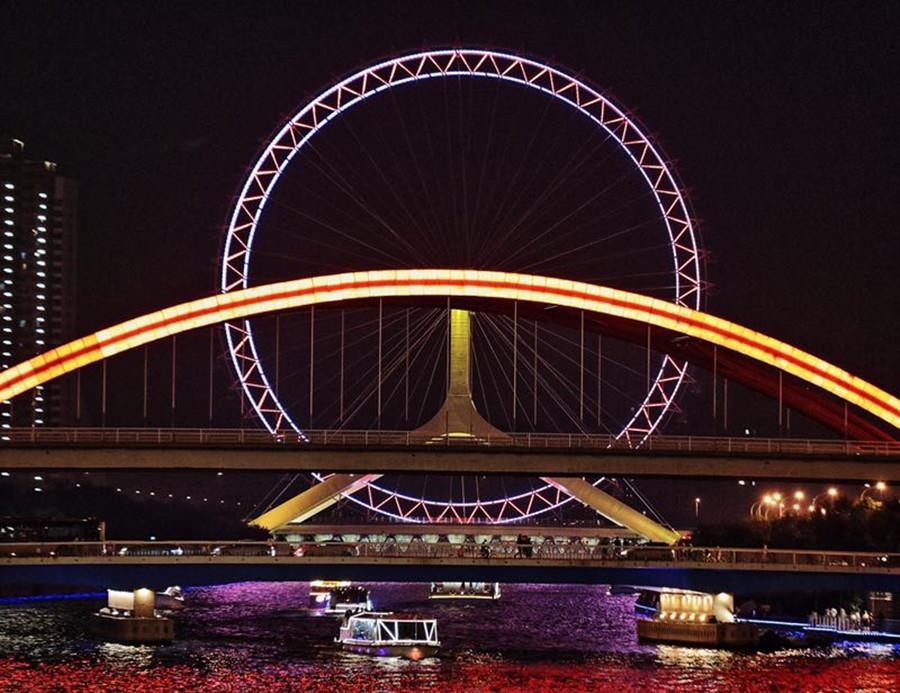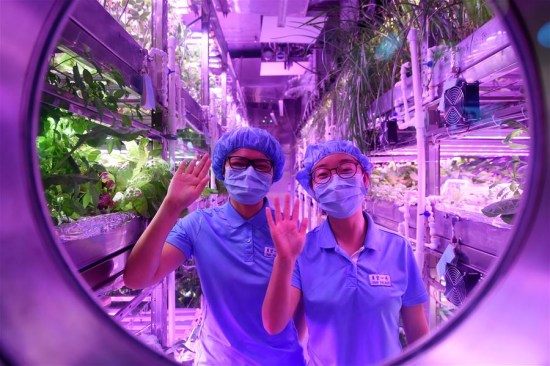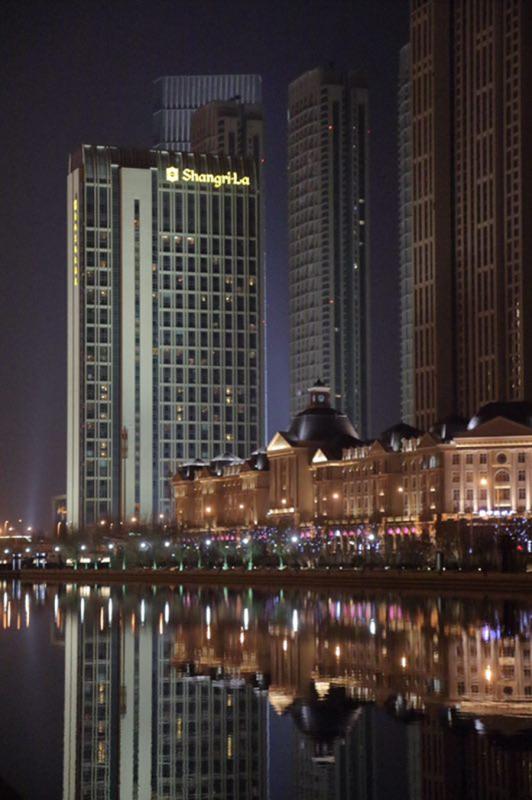
Haihe River at night, 2017. (Photo/chinadaily.com.cn)
It was fascinating looking at the waterways where riverside buildings and many elegant bridges are vividly illuminated at night, but also beyond to futuristic architecture including the 336.9 metre high Tianjin Tower World Financial Centre - symbols of modern functionality and dynamism contrasting with my first visit 22 years previously. Then Tianjin was just at the start of its transformation when I was introduced to Tianjin Economic-Technological Development Area (TEDA) and the Binhai New Area - zones that would ultimately focus on advanced industry, aviation, finance and innovation. A vast new port was being constructed. In 1996, still in its infancy, the ultimate goal was to create a powerhouse for northern China, just as Shanghai's Pudong and Guangdong's Shenzhen were doing further south. Ultimately, Tianjin would emerge as a 'Dual Core City'; although, the Old City centered around the Haihe managed a transformation combining modernity whilst retaining much of its legacy, making it such a fascinating area to explore. Most of my time and passion has been spent within Older Tianjin.






